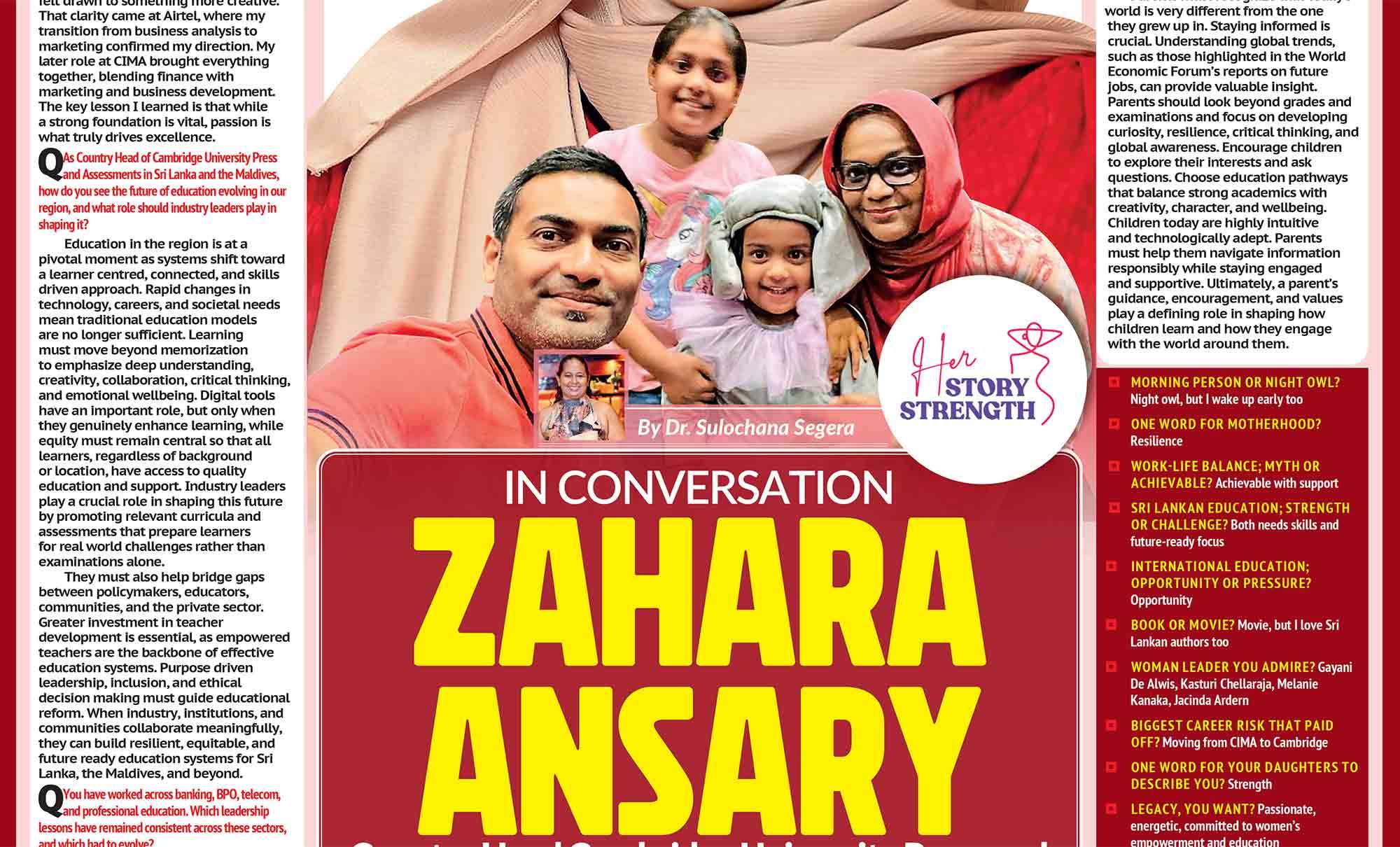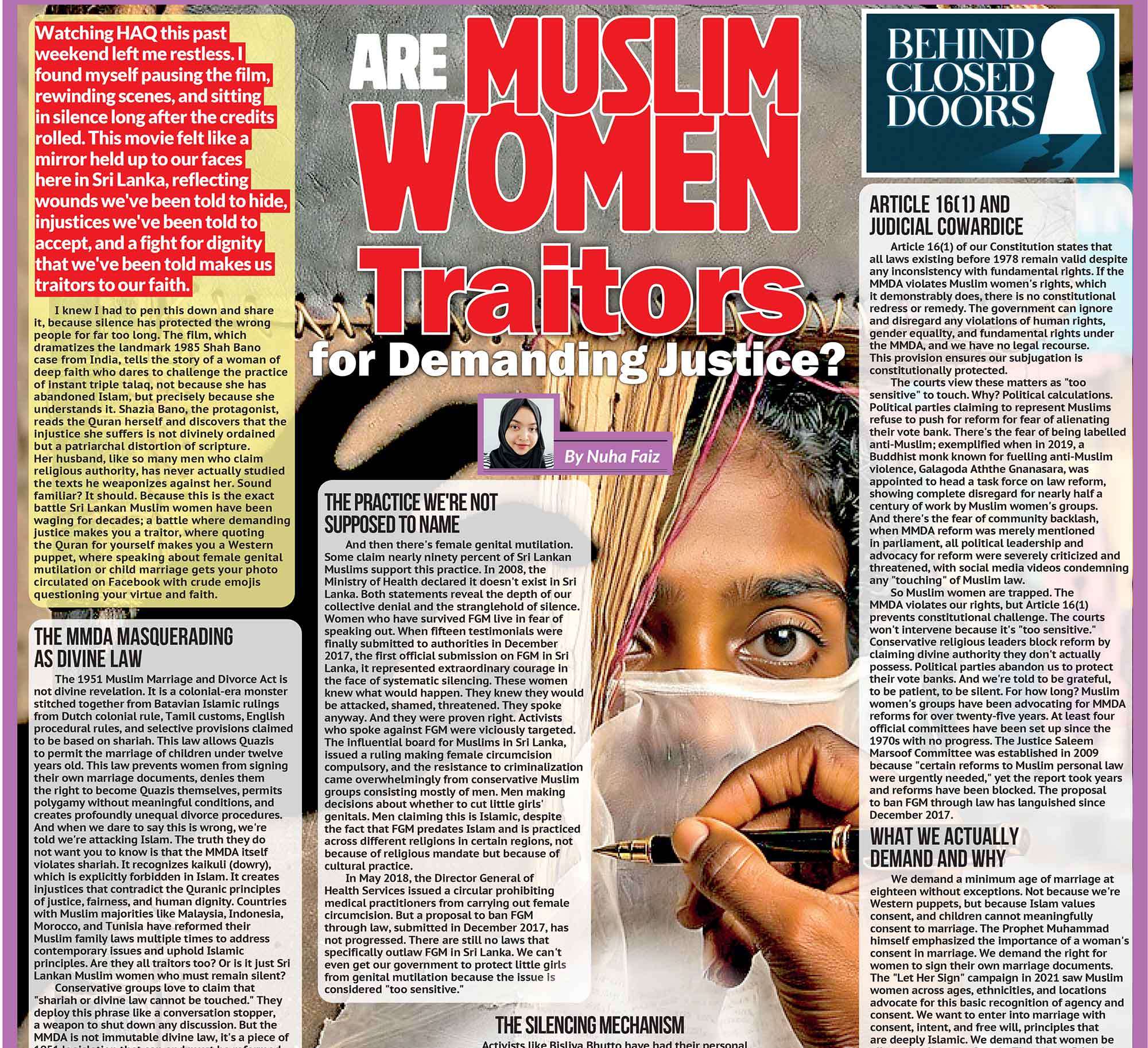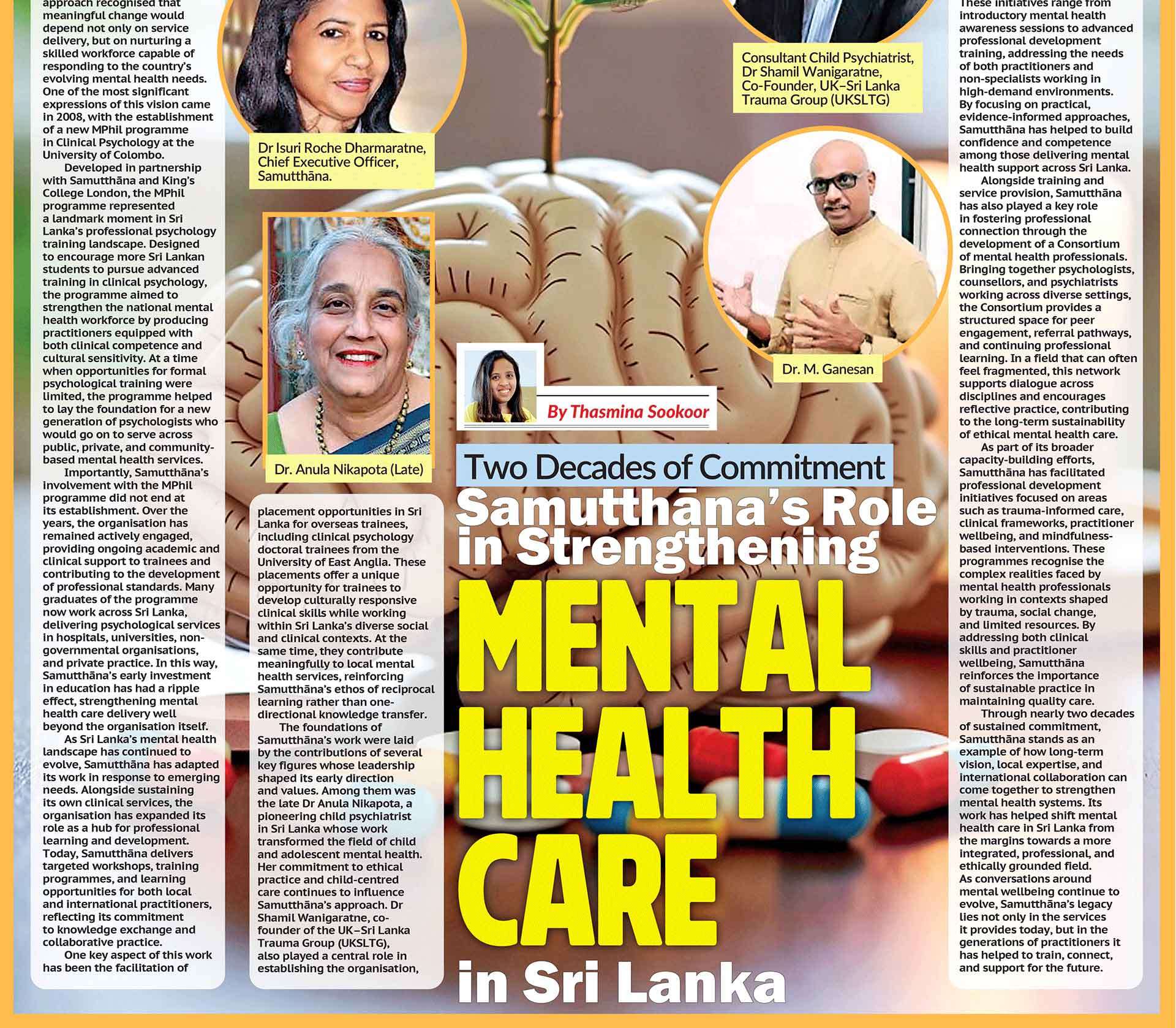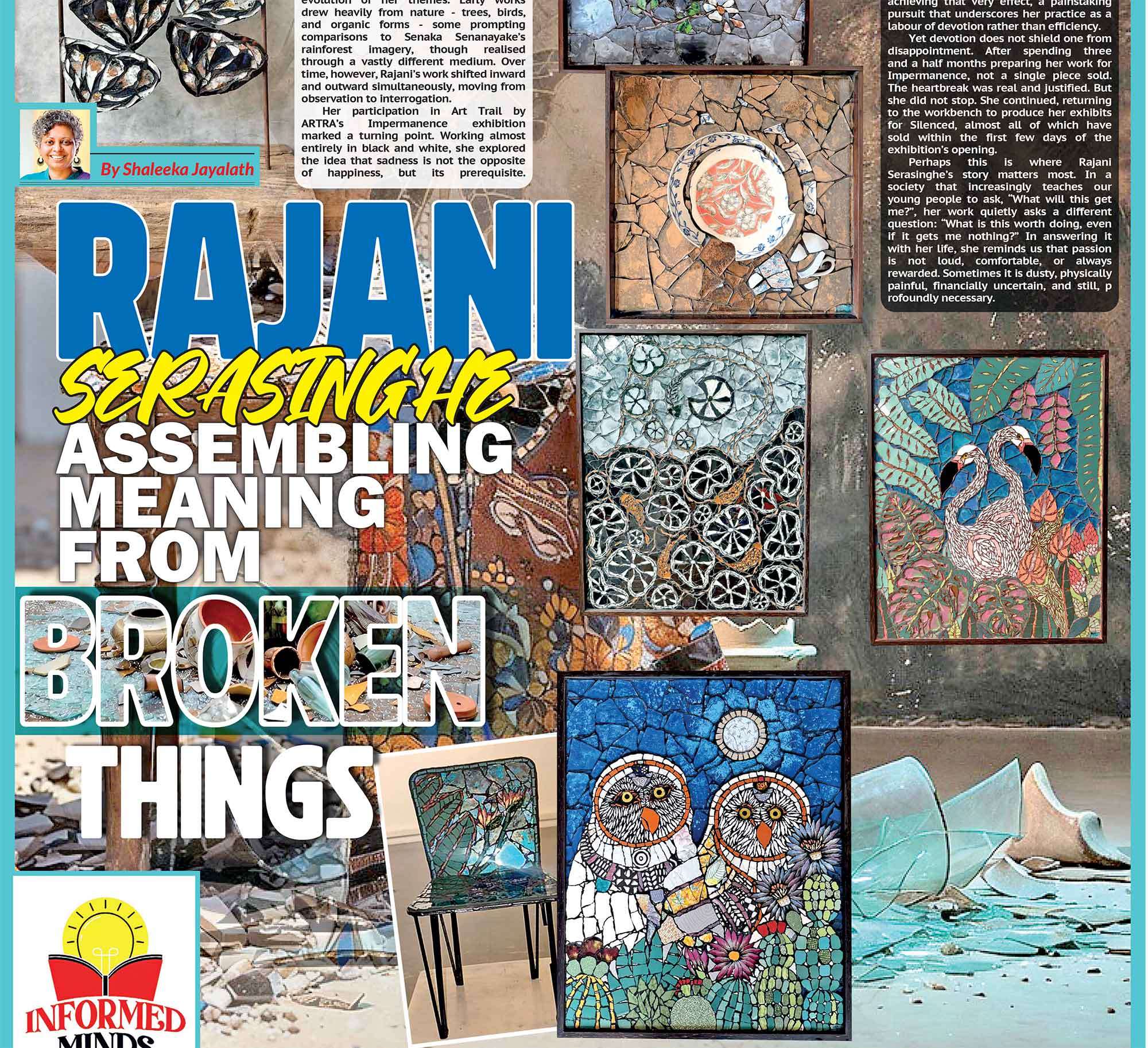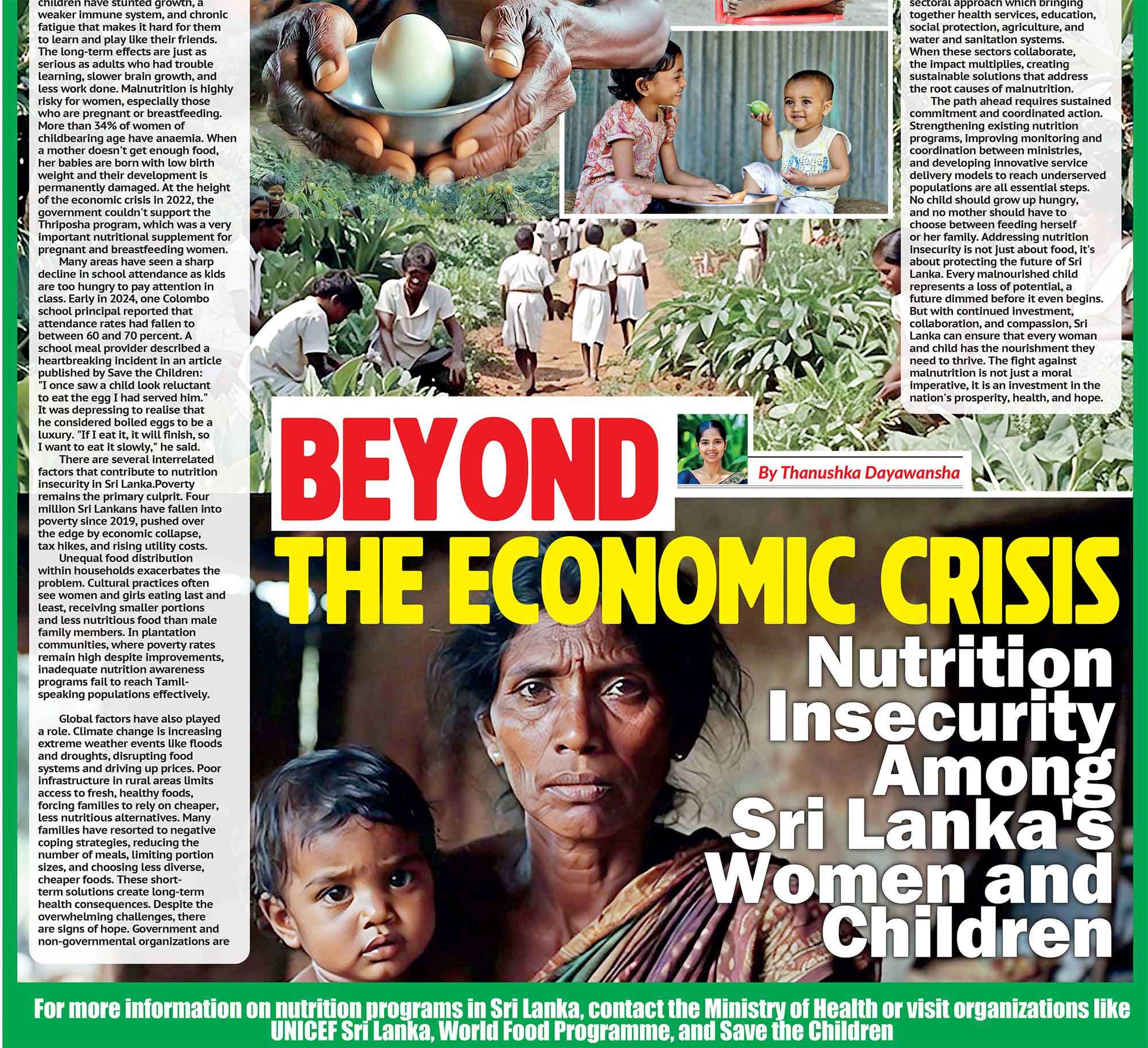
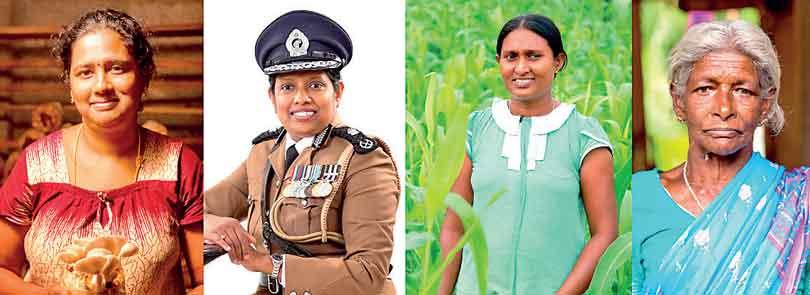
According to UN Women, 4.1% of Sri Lankan women aged 15–49 reported experiencing physical or sexual violence from a partner within a single year
One area where women are making remarkable strides is entrepreneurship. In Sri Lanka, the
percentage of female entrepreneurs has risen from 9.8% in 2013 to 12.4% in 2023, showing steady growth
 Every year on March 8th, Sri Lanka joins the rest of the world in celebrating International Women’s Day (IWD) – a day of reflection, recognition, and renewed commitment to gender equality. While it is an occasion to celebrate the achievements of women, it is also a powerful platform to address the challenges they continue to face. Over the years, IWD has played a crucial role in shaping the narrative around women’s empowerment in Sri Lanka, leading to meaningful progress in employment, leadership, entrepreneurship, and societal attitudes. Historically, Sri Lanka has been a pioneer in women’s rights, granting universal franchise to women in 1931, well ahead of many Western nations - and electing the world’s first female Prime Minister in 1960. Despite these landmark achievements, Sri Lankan society continues to struggle with deep-rooted patriarchal norms and gender disparities.
Every year on March 8th, Sri Lanka joins the rest of the world in celebrating International Women’s Day (IWD) – a day of reflection, recognition, and renewed commitment to gender equality. While it is an occasion to celebrate the achievements of women, it is also a powerful platform to address the challenges they continue to face. Over the years, IWD has played a crucial role in shaping the narrative around women’s empowerment in Sri Lanka, leading to meaningful progress in employment, leadership, entrepreneurship, and societal attitudes. Historically, Sri Lanka has been a pioneer in women’s rights, granting universal franchise to women in 1931, well ahead of many Western nations - and electing the world’s first female Prime Minister in 1960. Despite these landmark achievements, Sri Lankan society continues to struggle with deep-rooted patriarchal norms and gender disparities.
Women, who make up 51% of the population, remain significantly underrepresented in economic and leadership roles. Their participation in the workforce stands at only 32%, a stark contrast to the male labour force. This underrepresentation is not due to a lack of capability but rather a lack of opportunity, support, and institutional change. Women play a critical role in Sri Lanka’s key industries, often working behind the scenes with minimal recognition. The tea industry, one of the country’s largest revenue generators, is heavily reliant on female tea pluckers. The education sector is dominated by female teachers and lecturers who shape the nation’s future generations. A significant portion of Sri Lanka’s foreign exchange earnings come from women working overseas as domestic helpers, making immense sacrifices for their families and the economy. If these contributions are so crucial, why are women still fighting for equal footing?
One area where women are making remarkable strides is entrepreneurship. In Sri Lanka, the percentage of female entrepreneurs has risen from 9.8% in 2013 to 12.4% in 2023, showing steady growth. Traditionally, women-owned businesses focused on fashion, food, and service industries, but today, we see a shift towards manufacturing, construction, and technology, fields that were once considered male-dominated. Entrepreneurship provides financial independence, enhances self-confidence, and fosters social responsibility, benefiting not only women but the nation as a whole. Yet, challenges remain. Women face cultural barriers, lack of financial support, and skepticism regarding their ability to manage businesses and handle stress. The burden of unpaid domestic work disproportionately falls on women, limiting their ability to pursue career ambitions. To overcome these obstacles, we must change societal perceptions, ensure equal access to opportunities, and invest in education and skill-building programs from an early stage and over the years, through the awareness created by various IWD events, the country has seen a rise in female empowerment initiatives. The corporate sector has a significant responsibility in driving gender equality. At Dialog Axiata, we have taken deliberate steps to support and uplift women through several key initiatives:
Ideamart for Women: A platform empowering female entrepreneurs in technology and digital business, providing tools to innovate and scale their ventures.
Yeheli: A free digital platform offering expert advice on health, wellness, legal matters, and other essential services for women.
Diriya.lk: A knowledge portal providing resources for women entrepreneurs, MSMEs, and start-ups to help them succeed in business.
Beyond Dialog, organizations such as the Women Technopreneurs Forum (WTech Forum) by SLASSCOM and programs like ‘Hack Like a Girl’ are also paving the way for more women to enter STEM fields. These initiatives provide mentorship, funding, and networking opportunities, ensuring that Sri Lankan women have the resources and support to succeed in a rapidly evolving digital economy. Despite progress, there is still work to be done. Women’s representation in leadership and politics remains alarmingly low. As of early 2024, only 5.3% of Sri Lanka’s parliamentary seats are held by women. Policies like Sri Lanka’s National Action Plan on Women, Peace, and Security (2023–2027) aim to address this gap, but cultural and systemic hurdles continue to limit female participation in decision-making roles.
Another critical issue is gender-based violence. According to UN Women, 4.1% of Sri Lankan women aged 15–49 reported experiencing physical or sexual violence from a partner within a single year. The stigma surrounding this issue prevents many women from seeking help, and legal protections remain inadequate. International Women’s Day has been instrumental in raising awareness, advocating for policy change, and encouraging survivors to speak out. Empowering women is not just a women’s issue—it is a national issue. Women should not have to work twice as hard to achieve half as much as their male counterparts. Gender equality is not about giving women an advantage, it is about ensuring fair access to opportunities for all. Each of us has a role to play. Employers must promote inclusive workplaces. Policymakers must implement and enforce gender-equal policies. Families must break traditional stereotypes that limit girls’ potential. Women must support and uplift each other, breaking the cycle of bias and discrimination.
As we celebrate International Women’s Day, let us remember that the journey toward gender equality does not end on March 8th. It is a continuous effort, one that requires collective action, bold decisions, and unwavering commitment. If Sri Lanka is to truly progress, women must be at the forefront—not as an afterthought, but as equal partners in building a brighter future. This change starts with us—you and me. We owe it to our daughters, to our sons, and to future generations to create a society that values equality, respects diversity, and empowers every individual to reach their full potential. Let’s not wait for change—let’s be the change.


